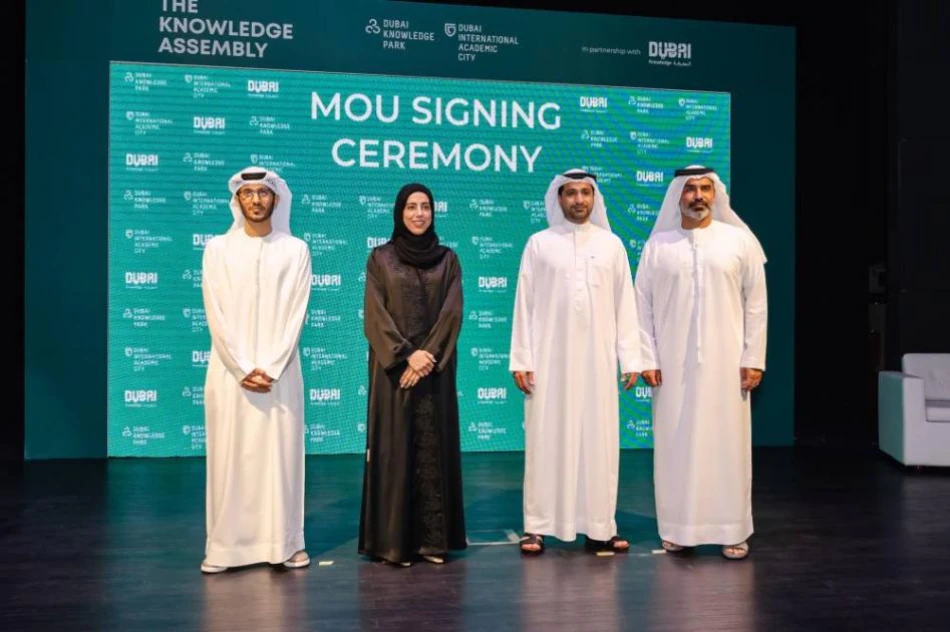
Dubai Elevates Higher Education through Strategic Partnership
Dubai has signed a major partnership to strengthen its position as a global education hub. The Dubai Academic City and Dubai Knowledge Park, both part of TECOM Group, joined forces with Dubai's Knowledge and Human Development Authority to attract more international universities and boost higher education quality.
The agreement supports Dubai's Economic Agenda D33 and Education Strategy 2033. It was signed during the Knowledge Forum, with top officials including Aisha Abdullah Miran, Director General of the Authority, and Abdullah Belhoul, CEO of TECOM Group, in attendance.
Dr. Said bin Kharbash, Executive Director of Policies, Research and Programs at the Authority, explained Dubai's ambitions. "Dubai wants to become a global center for knowledge and innovation through close cooperation between all parts of our higher education system," he said. "This partnership is an important step toward that goal."
The collaboration will focus on attracting elite global universities and professional institutes through joint events and visits. They plan to run awareness campaigns like the "Study in Dubai" initiative to draw students from around the world.
Marwan Jnahhi, Senior Vice President at TECOM, emphasized the practical benefits. "Continuous cooperation with relevant authorities is essential for advancing higher education and enhancing its capabilities," he noted. The partnership will support research, innovation, and entrepreneurship programs for students while ensuring they graduate with the skills needed for today's job market.
The agreement also establishes the Higher Education Leaders Forum, designed to shape the future of higher education in Dubai. The forum brings together voices from Dubai Health Authority, University of Birmingham Dubai, University of Wollongong in Dubai, and TECOM's in5 business incubator.
For Dubai, this represents a significant investment in its knowledge economy. The emirate is positioning itself to compete with established education hubs like Singapore and London by offering world-class facilities and streamlined regulations for international institutions.
The partnership comes at a time when global education is becoming increasingly competitive. Countries across the Middle East are investing heavily in attracting international students and faculty, seeing education as both an economic opportunity and a way to diversify away from oil dependence.
Most Viewed News

 Omar Rahman
Omar Rahman






